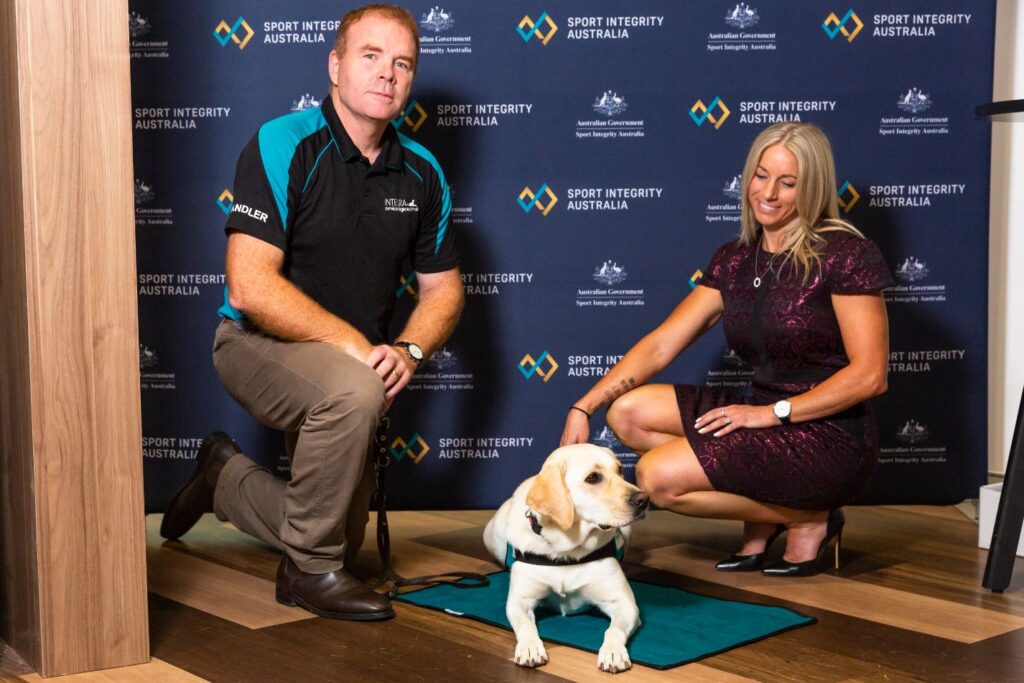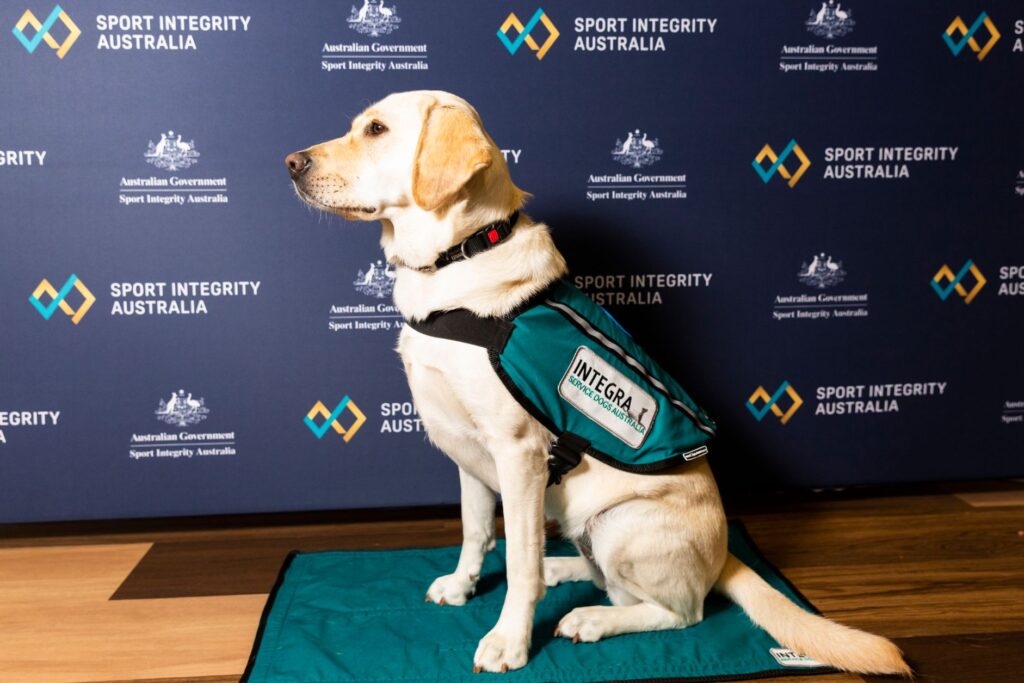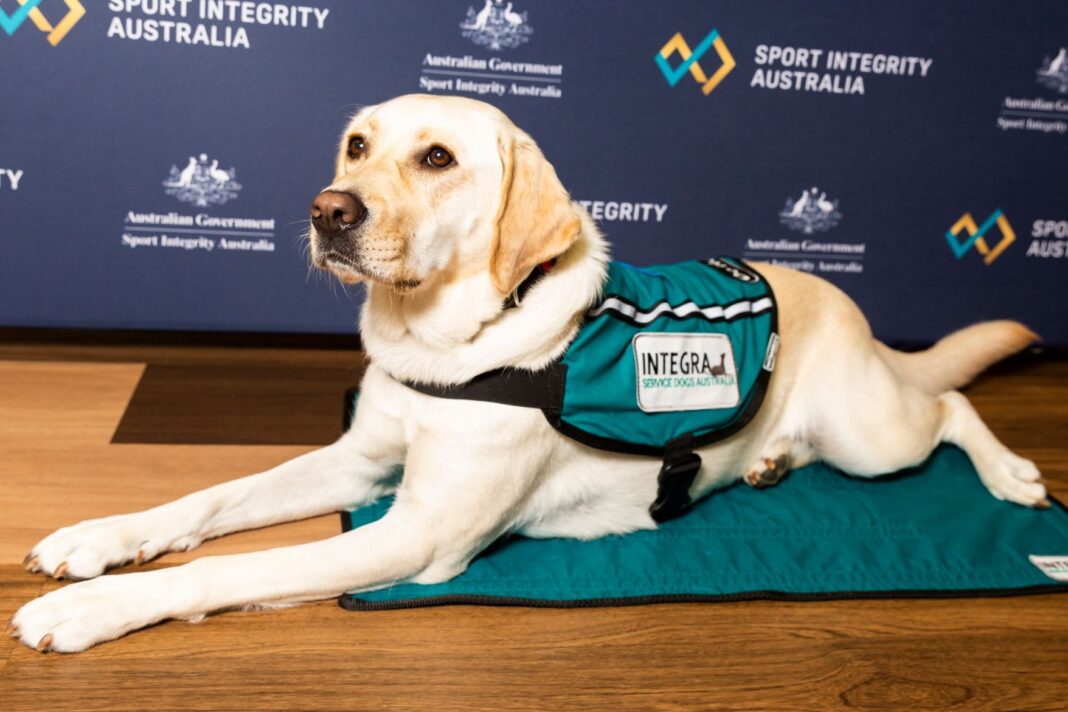Dogs in the office is a lot of people’s dream work scenario – but what if your workplace encouraged you, and even helped you, to foster a furry friend?
That’s what Australian Government agency Sport Integrity Australia (SIA) is doing through a new partnership with Integra Service Dogs Australia, which works with veterans and first responders experiencing post-traumatic stress disorder.
SIA employees have been encouraged to register their interest through their HR department to foster a future assistance dog, in the hopes it will be mutually beneficial for the agency, its employees and the dogs.

“Nobody is short of a smile with a dog in the office,” says SIA Chief Financial Officer Rebecca Tyler.
“I think for the person that’s fostering the dog it’s going to be an amazing experience and a learning experience for them, because they’re not only going to need to look after that dog during the day but manage their own workload. The dogs are exceptionally well behaved and we have a guideline in place for managing service dogs in the office.”
If it forms part of the individual fostering arrangement, employees will be encouraged to bring the dog into the office.
Two employees have already taken part in the program, both during the period of COVID-19 restrictions that required employees to work from home.
“It’s just a really positive thing,” says Ms Tyler. “Anything that we can do to make it enjoyable to come to work and coming up with innovative ways of building morale and mental wellbeing in staff, and promote opportunities for employees with disabilities.”
Foster families will typically spend around four weeks with their furry friends, after which the dogs will go on to make an enormous impact in the lives of their handler.

“The bond that the person builds with the dog is one of unconditional support and trust,” says Integra CEO Ben Johnson. “The benefits are enormously significant.”
“Nothing is more powerful than actually getting someone back from a severe extent of suicidal ideation or self-harm or destructive self-medication and in getting them back onto a steady routine, reattach with their family, back to their workplace and with their community.
“It’s extraordinary to think about what the dog can contribute to an individual.”
SIA hopes the partnership could eventually extend to include the dogs in their educational outreach efforts and for support for athletes during their interactions with the agency.
If you or someone you know needs help, contact Lifeline on 13 11 14 or Open Arms Veterans & Families Counselling on 1800 011 046.
For more news:



